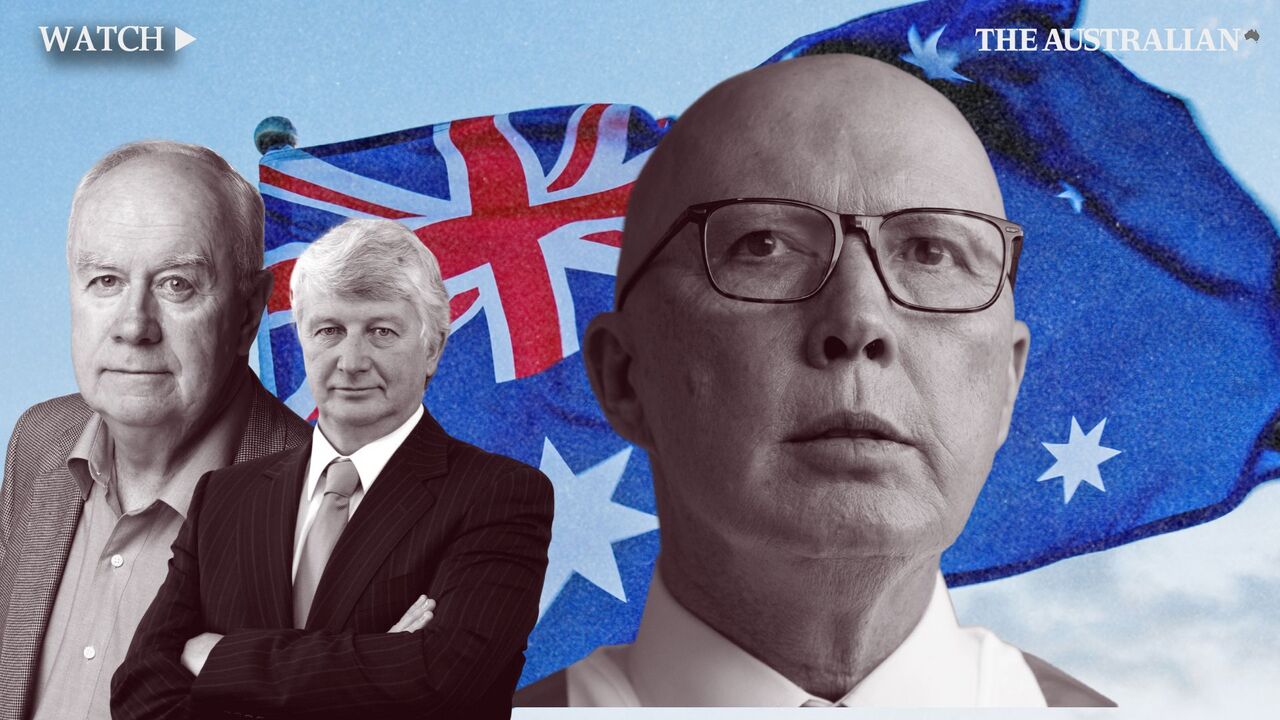
Peter Dutton has opened his heart on his economic and security convictions. By identifying indexation of the personal income tax rate scales as a personal “aspiration” the Opposition Leader has signalled his belief in one of the most ambitious income tax reforms.
This is huge product differentiation between the Albanese government and Dutton. In his exclusive interview with The Australian, Dutton aligned himself with the Howard-Costello Liberal era in long-run personal income tax reform and reductions.
At the midpoint of the campaign Dutton has flicked the switch. He is building a longer tax vision onto his immediate temporary measures to offer cost-of-living relief. Dutton wants to add policy value to his campaign but also project himself as a genuine tax and economic reformer.
It is an attempt to re-boot his image and restore public confidence in the Liberals’ fidelity to serious taxation reform.

In the interview he was explicit – Dutton wants to tackle the curse of bracket creep that he condemns as a “killer in the economy”, a constant erosion of “entrepreneurialism and hard work”, a burden that “stifles productivity” but a reform that guarantees “equity”.
Consistent with his campaign theme on spending discipline and the narrative of the Howard government, Dutton said ambitious tax reform would only come when the budget could afford it.
He made clear indexation of the tax rate scale was not a promise he was making at this election. But it was an aspiration he intended to honour as prime minister.
He called this “the Howard model” – and recalled how John Howard and Peter Costello after the 1996 election tackled the budget deficit and debt first, devised a major reform of the tax system and took that proposal to the 1998 election.
Dutton said the current state of the budget – with Labor’s long line of deficits – meant an election promise could not be made at this time. Recent estimates suggest the initial cost of indexation of the tax rate scale would be about $4bn a year but the cost would rise over time. That means a disciplined fiscal policy is an imperative for the reform. In recent weeks a number of economists, more in hope than expectation, urged Dutton to commit to index the personal income tax scales.

Dutton said this reform aspiration reflected the story of his political and personal life in small business. “Lower, simpler, fairer taxes is instinctive for me,” he said.
Criticising the income tax burden Labor has imposed on Australian taxpayers, Dutton said tax reform was “within our DNA”.
On government spending, Dutton said his Coalition government “could do better than 10 years” when it came to improving on Labor’s projection of 10 years to bring the budget back into balance. Given the initial qualification on spending restraint, Dutton said he still wanted to move “as quickly as we can as a country” to reform the tax system and implement indexation.
At the same time Dutton, still not releasing his defence budget, vowed that it would be “significantly” in advance of Labor’s promise to increase defence spending to 2.3 per cent of GDP and that its pathway would be faster, with Labor’s target not to be reached until 2033-34.
The revelation of the closer relationship between Russia and Indonesia along with China’s more assertive naval penetration of Australia’s region gives Dutton a new opening on defence and national security at the campaign midpoint.






